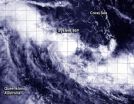(Press-News.org) Obesity levels among women in low- and middle-income countries tend to rise in line with wealth as they purchase more energy-dense foods, but a new UCL study suggests that more educated consumers make better food choices that mitigate this effect.
The study showed that in middle-income countries, obesity levels among women with secondary or higher education are 14-19% lower than less-educated women of similar wealth.
The research, published in PLOS ONE, looked at the relationships between obesity, education and wealth in over 250,000 people across four middle-income and three low-income countries between 2005 and 2010. More educated people are typically wealthier, and this study was the first to isolate the effects of education and wealth to unpick their distinct effects.
Each household's "wealth index" was measured by evaluating their possessions, housing situation and access to basic amenities. Based on these criteria, they were divided into five wealth brackets on a scale of 1-5, from richest to poorest, in each country.
The middle-income countries examined were Egypt, Jordan, Peru and Colombia. In Egypt, where 43% of the 32,272 women surveyed were obese, the effect of wealth on obesity was reduced as education levels increased. The increased risk of obesity associated with a rise in wealth bracket was 39% for women with primary education or below, 25% for women with secondary education and only 2% for women with higher education.
"For the first time, we have studied the interaction between wealth and education and found that they have fundamentally different effects on obesity," says lead author Dr Amina Aitsi-Selmi, Wellcome Trust fellow at UCL. "As emerging economies are exposed to a flood of calories from the global food market, rising wealth often leads to rising obesity as people buy energy-dense foods.
"Our study suggests that investing in women's education protects against this effect by empowering individuals to look after their health. However, it is not a substitute for good public health systems and the regulation of commercial activity such as the aggressive marketing that puts pressure on individuals to consume unhealthy products and take unnecessary risks with their health."
In the low-income countries of India, Nigeria and Benin, the relationship between education and wealth was more difficult to unpick. In India, where only 2.8% of the 113,063 women surveyed were obese, wealth had a profound impact on the risk of obesity. For each increase in wealth bracket, the risk of obesity increased by 123%.
"The jump in obesity risk that people in low-income countries experience as they become wealthier is likely related to the environment of scarcity," explains Dr Aitsi-Selmi. "The weight of scientific evidence that we have leaves no doubt that the environment we live in is largely responsible for the obesity epidemic."
INFORMATION: END
Education 'protects' poor women from fattening effects of rising wealth
2014-03-08
ELSE PRESS RELEASES FROM THIS DATE:
Deer proliferation disrupts a forest's natural growth
2014-03-08
ITHACA, N.Y. – By literally looking below the surface and digging up the dirt, Cornell researchers have discovered that a burgeoning deer population forever alters the progression of a forest's natural future by creating environmental havoc in the soil and disrupting the soil's natural seed banks.
The study, "Deer Browsing Delays Succession by Altering Aboveground Vegetation and Belowground Seed Banks," was published online March 7 in PLOS ONE.
"Deer are slowing down forest succession or natural establishment. In fact, the deer are preventing forests from establishing," ...
New guidelines employ a team approach to autism diagnosis and care
2014-03-08
Improving diagnosis and treatment for individuals with autism has been the focus of a growing body of research. New information from these studies led the American Academy of Child and Adolescent Psychiatry to revise key parameters for evaluating and treating autism. Researchers led by Yale Child Study Center director Fred Volkmar, M.D., have published the new practice parameters in the Feb. issue of the Journal of the American Academy of Child and Adolescent Psychiatry.
"Early diagnosis of children with autism spectrum disorders means treatments will be introduced that ...
Research on 3D scaffolds sets new bar in lung regeneration
2014-03-07
In end-stage lung disease, transplantation is sometimes the only viable therapeutic option, but organ availability is limited and rejection presents an additional challenge. Innovative research efforts in the field of tissue regeneration, including pioneering discoveries by University of Vermont (UVM) Professor of Medicine Daniel Weiss, M.D., Ph.D., and colleagues, holds promise for this population, which includes an estimated 12.7 million people with chronic obstructive pulmonary disorder (COPD), the third leading cause of death in the U.S.
In the past year alone, Weiss ...
New NASA Van Allen Probes observations helping to improve space weather models
2014-03-07
Using data from NASA's Van Allen Probes, researchers have tested and improved a model to help forecast what's happening in the radiation environment of near-Earth space -- a place seething with fast-moving particles and a space weather system that varies in response to incoming energy and particles from the sun.
When events in the two giant doughnuts of radiation around Earth – called the Van Allen radiation belts -- cause the belts to swell and electrons to accelerate to 99 percent the speed of light, nearby satellites can feel the effects. Scientists ultimately want ...
NASA satellites see double tropical trouble for Queensland, Australia
2014-03-07
There are two developing areas of tropical low pressure that lie east and west of Queensland, Australia. System 96P and System 98P, respectively. The MODIS instrument that flies aboard both NASA's Aqua and Terra satellites captured images of both tropical trouble-makers as each satellite passed overhead on March 7.
In the Coral Sea, part of the Southwestern Pacific Ocean, System 96P was just 125 nautical miles/143.8 miles/231.5 km north-northeast of Willis Island, Australia. It was centered near 14.3 south latitude and 150.6 east longitude. System 96P is moving in south-southwesterly ...
The dark side of fair play
2014-03-07
We often think of playing fair as an altruistic behavior. We're sacrificing our own potential gain to give others what they deserve. What could be more selfless than that? But new research from Northeastern University assistant professor of philosophy Rory Smead suggests another, darker origin behind the kindly act of fairness.
Smead studies spite. It's a conundrum that evolutionary biologists and behavioral philosophers have been mulling over for decades, and it's still relatively unclear why the seemingly pointless behavior sticks around. Technically ...
Service is key to winery sales
2014-03-07
ITHACA, N.Y. – To buy, or not to buy? That is the question for the more than 5 million annual visitors to New York's wineries. Cornell University researchers found that customer service is the most important factor in boosting tasting room sales, but sensory descriptions of what flavors consumers might detect were a turn-off.
The findings stem from two studies on how the tasting room experience affects customer purchases and what wineries can do to create satisfied sippers, published in the current issue of the International Journal of Wine Business Research.
"On average, ...
Ever-so-slight delay improves decision-making accuracy
2014-03-07
NEW YORK, NY (March 7, 2014) — Columbia University Medical Center (CUMC) researchers have found that decision-making accuracy can be improved by postponing the onset of a decision by a mere fraction of a second. The results could further our understanding of neuropsychiatric conditions characterized by abnormalities in cognitive function and lead to new training strategies to improve decision-making in high-stake environments. The study was published in the March 5 online issue of the journal PLoS One.
"Decision making isn't always easy, and sometimes we make errors ...
Notre Dame chemists discover new class of antibiotics
2014-03-07
A team of University of Notre Dame researchers led by Mayland Chang and Shahriar Mobashery have discovered a new class of antibiotics to fight bacteria such as methicillin-resistant Staphylococcus aureus (MRSA) and other drug-resistant bacteria that threaten public health. Their research is published in the Journal of the American Chemical Society in an article titled "Discovery of a New Class of Non-beta-lactam Inhibitors of Penicillin-Binding Proteins with Gram-Positive Antibacterial Activity."
The new class, called oxadiazoles, was discovered in silico (by computer) ...
New theory on cause of endometriosis
2014-03-07
Changes to two previously unstudied genes are the centerpiece of a new theory regarding the cause and development of endometriosis, a chronic and painful disease affecting 1 in 10 women.
The discovery by Northwestern Medicine scientists suggests epigenetic modification, a process that enhances or disrupts how DNA is read, is an integral component of the disease and its progression. Matthew Dyson, research assistant professor of obstetrics and gynecology at Northwestern University Feinberg School of Medicine and and Serdar Bulun, MD, chair of obstetrics and gynecology ...

